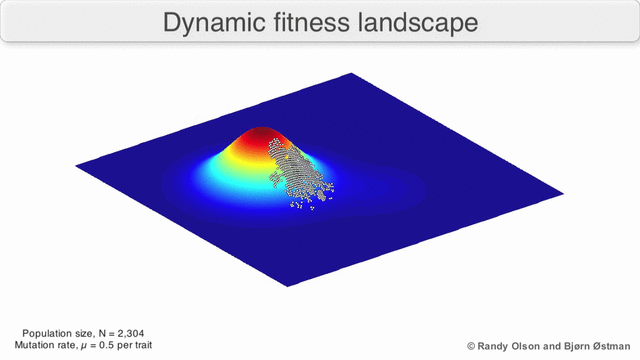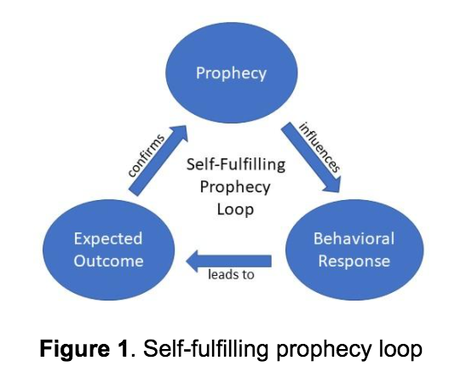Há muitos anos li a frase, “Todos os modelos estão errados, alguns são úteis”, desde então tem-me acompanhado e, de certa forma, ajudado a trabalhar com modelos. Um modelo é uma ferramenta, só isso, uma hipótese de lidar com a realidade. Um modelo não é a realidade, algo que muitos esquecem. Um modelo é, de certa forma, uma ilusão. Talvez por isso, tenha abraçado as ideias de Peter Checkland sobre os ovos estrelados, ou as amibas, em vez dos rectângulos arrogantes e pretensiosos.
Quem trabalha com sistemas de gestão tem de trabalhar com modelos. Por exemplo, os mapas de processos nos sistemas da qualidade com base na abordagem por processos. Ou seja, quem trabalha com sistemas de gestão tem de trabalhar com ilusões. Recentemente comecei a ler o livro "The Upside of Uncertainty" onde os autores nos despertam para o receio que tanta gente tem da incerteza. Talvez por isso muitos esquecem que um modelo é só uma ferramenta e tratam-no como a descrição perfeita da realidade.
Por que medimos o desempenho dos processos e o desempenho do sistema de gestão? Porque existe incerteza! Porque a realidade é volúvel e pode alterar o que pensávamos. No entanto, há uma outra razão que muitas vezes esqueço de verbalizar. Temos de medir, analisar e avaliar porque o nosso modelo é só uma rede que lançamos à realidade. A realidade é demasiado complexa para ser descrita por um qualquer modelo. A medição, análise e avaliação permite perceber quando é que o modelo se afasta tanto da realidade que deixa de ser útil.
Por que escrevo isto? Por causa de uma crítica ao livro "Escape From Model Land: How Mathematical Models Can Lead Us Astray and What We Can Do About It" de Erica Thompson, publicada no passado dia 28 de Dezembro no WSJournal.
"We live in an information age, as the cliché has it-really an age of information overload. But “measured quantities do not speak for themselves,” observes Erica Thompson, a statistician and a fellow at the London School of Economics. Data, she notes, are given meaning “only through the context and framing provided by models.” [Moi ici: Tenho uma interpretação um pouco diferente. Medimos. Analisamos, qualquer estagiário faz isso se for ensinado. Ou seja, como trabalhar os dados brutos e transformá-los em algo que possa ser avaliado. Avaliamos, já usamos o modelo para analisar os dados. Agora, usamos o contexto interno e externo para avaliar o desempenho e a continuação da confiança no modelo. Aquele pormenor de saltar do ciclo SDCA para o ciclo PDCA - "Avancemos agora para a Figura 2." Quando decidimos que precisamos de dar o salto é quando percebemos que o modelo que temos já não permite esperar um desempenho aceitável, temos de o melhorar.]
When we want to know how rapidly a new infectious virus is likely to spread, we turn to mathematical models. Models are used by climate scientists to project global warming; by options traders to price contracts; by the Congressional Budget Office to forecast the economic effects of legislation; by meteorologists to warn of approaching storms. Without models, Ms. Thompson says, data "would be only a meaningless stream of numbers."
Ubiquitous and persuasive, models also drive decisions-one reason why, in Ms. Thompson's view, they require our urgent attention. She tells us that, as a graduate student studying North Atlantic storms, she noticed how different models predicted different overall effects and produced contradictory results. She started to reflect on the role of models as metaphors, tools for understanding, and expressions of sociopolitical power. "Escape From Model Land" offers a contemplative, densely encapsulated summary of her reflection and research.
[Moi ici: O parágrafo que se segue é precioso] Models seek to represent the real world, but they live outside it. Indeed, they exist in their own "wonderful place,' what Ms. Thompson dubs "Model Land." In Model Land, the assumptions of a model are considered "literally true," enabling expansive exploration and ambitious predictions. The problem is that Model Land is easy to enter but difficult to escape. Having built "a beautiful internally consistent model," Ms. Thompson writes, it can be "emotionally difficult to acknowledge that the initial assumptions on which the whole thing is built are literally not true."
...
There are all sorts of ways that models can lead us astray. A small measurement error on an input can lead to wildly inaccurate forecasts-a phenomenon known as the Butterfly Effect. Fortunately, this type of uncertainty is often manageable. Far more problematic are what Ms. Thompson calls "unquantifiable unknowns" -things that are left out of a model's calculation because they can't be anticipated, such as the unexpected arrival of a transformative technology or the abrupt collapse of a robust market.
...
[Moi ici: Outro parágrafo precioso] Beyond the inherent inability of models to account for the unaccountable, models also reflect the biases of their creators. We may be inclined to regard models as objective expressions of truth, yet they are deliberately constructed interpretations, imbued with the values and viewpoints of the modelers-primarily, as Ms. Thompson notes, well-educated, middle-class individuals. During the pandemic, models "took more account of harms to some groups of people than others," resulting in a "moral case" for lockdowns that was "partial and biased." Modelers who worked from home while others maintained the supply chain often overlooked "all of the possible harms" of the actions their models were suggesting. And even when models try to describe the effects of different courses of action, human beings must ultimately weigh the benefits and harms. "Science cannot tell us how to value things," Ms. Thompson says. "The idea of 'following the science' is meaningless."
...
The statistician George Box once observed that "all models are wrong, but some are useful." For Ms. Thompson, the real utility of models is as a tool for exploration rather than a mechanism to divine the truth or predict the future. "The process of generating a model changes the way that we think about a situation," she writes; it "strengthens some concepts and weakens others." Recalling President Eisenhower's legendary maxim-that "plans are useless, but planning is indispensable"--she argues that relying on models solely for their output misses the indispensable value of the process of model development: of trade-offs, and the agility to adapt if foundational assumptions unexpectedly change.
While acknowledging our "overenthusiasm for mathematical solutions," Ms. Thompson emphatically counsels not abstinence but discipline and humility. Clarity about the purpose of the model matters, she says: An epidemiological model may inform us about viral transmission and hospital pressure but not about the economic effects of closing businesses. Modelers should acknowledge the value judgments implicit in their models, explain what makes a model "good" and describe relevant limitations. But it's up to us to learn from models without being drawn in by their seductive elegance and to ensure that the lessons from Model Land find substantive expression where it actually matters: in our messy, material, magnificent world."




























.jpg)

%2006.21.jpeg)












